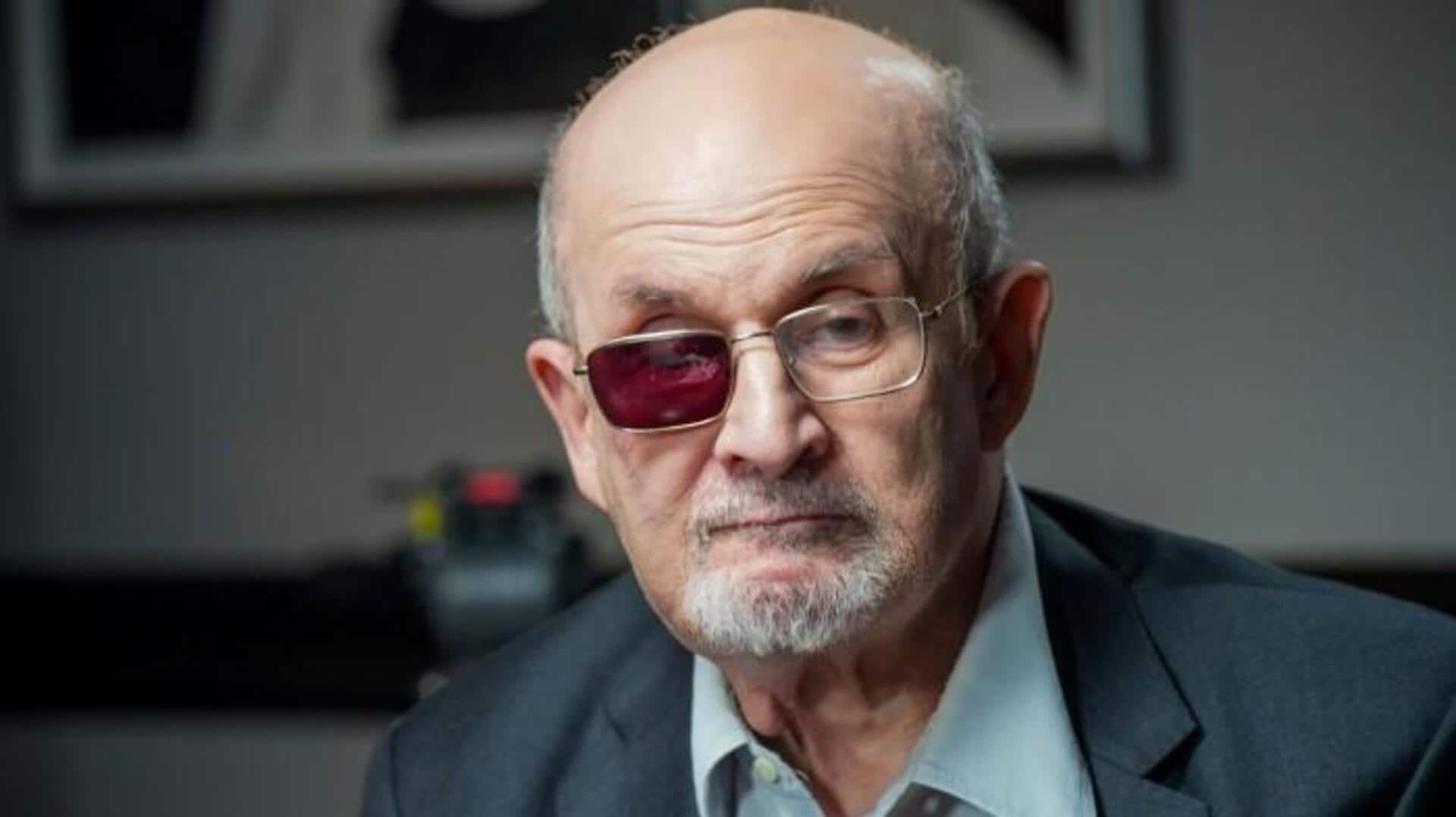
Salman Rushdie to testify in attempted murder trial
What's the story
The trial of Hadi Matar, the man accused of attempting to murder renowned author Salman Rushdie, will begin this week in Mayville, New York. The alleged attack occurred during a literary lecture in Chautauqua, New York in 2022. Matar is accused of stabbing Rushdie 10 times, resulting in the author losing sight in one eye and suffering nerve and liver damage.
Legal proceedings
Matar pleads not guilty, trial postponed twice
The trial has been delayed twice at the request of Matar's defense team. First, they requested Rushdie's memoir manuscript and later asked to change the venue for an impartial jury. Matar has pleaded not guilty to attempted murder and assault charges. Along with these charges, he also faces federal terrorism-related charges for allegedly supporting Hezbollah.
Trial concerns
Prosecutors link attack to fatwa, defense fears bias
Prosecutors claim Matar's attack on Rushdie was fueled by a fatwa issued by Iran against the author for his novel The Satanic Verses. However, District Attorney Jason Schmidt said the fatwa would not be addressed during the trial. Matar's lawyer raised concerns about possible bias against Arab Americans in Chautauqua County and proposed relocating the trial to areas with larger Arab American populations.
Radicalization claims
Matar's radicalization and Iran's denial of involvement
Matar's mother alleged he was radicalized after a trip to Lebanon in 2018. In an interview with the New York Post, Matar expressed hatred for Rushdie and praised Ayatollah Khomeini, but did not confirm following the fatwa. Iran's foreign ministry denied any involvement in the attack and instead blamed Rushdie and his supporters.
Trial testimony
Rushdie's survival and expected testimony
Rushdie credited "man-made miracles" for surviving the attack, adding that he was lucky that vital organs were missed. He is expected to testify along with Henry Reese, co-founder of Pittsburgh's City of Asylum. Legal expert Ron Kuby speculated on Matar's defense strategy, wondering if it would center around reasonable doubt or ideological motives. In his memoir Knife, Rushdie called the attack "a murderous ghost from the past."